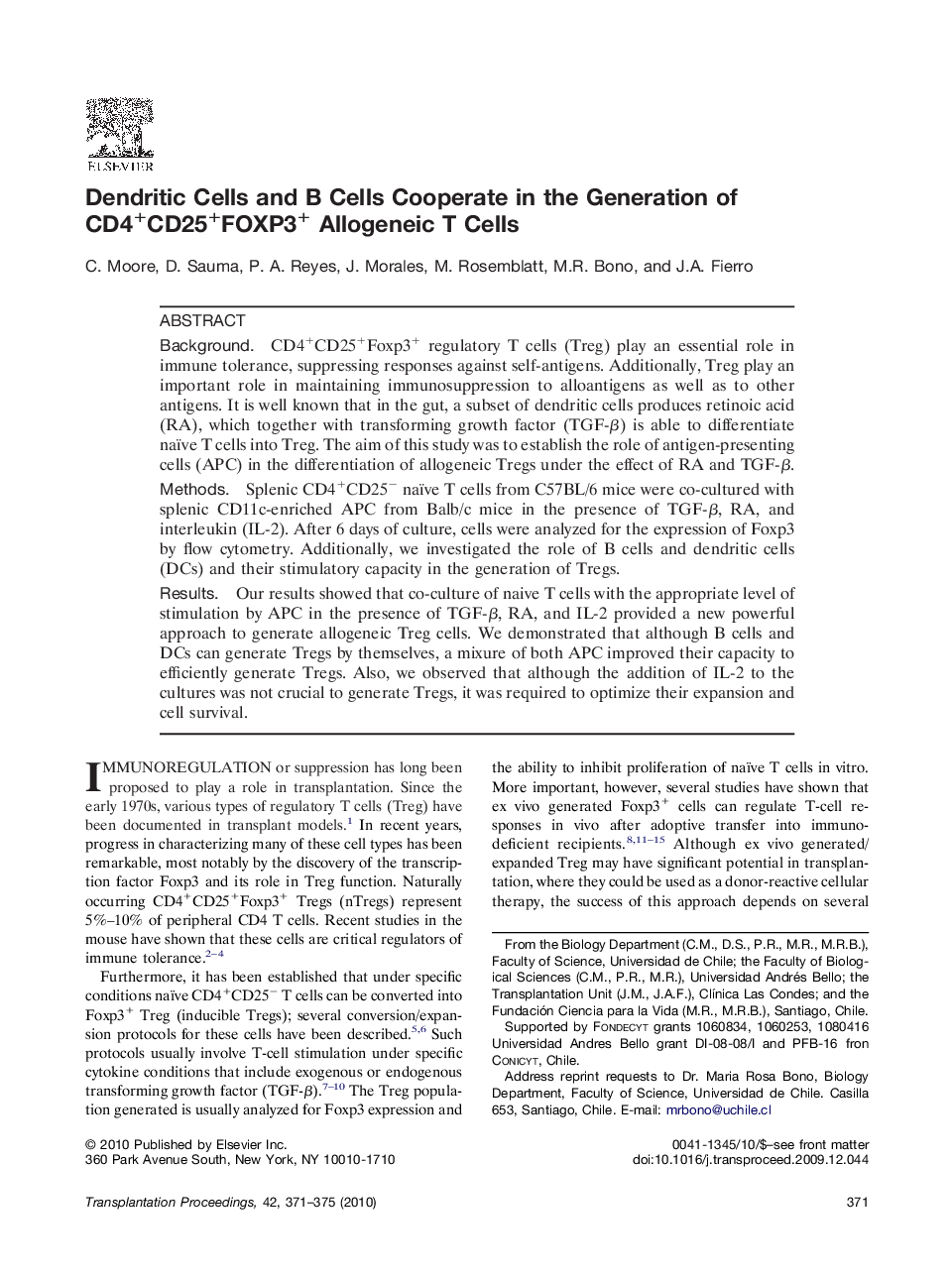| Article ID | Journal | Published Year | Pages | File Type |
|---|---|---|---|---|
| 4260891 | Transplantation Proceedings | 2010 | 5 Pages |
BackgroundCD4+CD25+Foxp3+ regulatory T cells (Treg) play an essential role in immune tolerance, suppressing responses against self-antigens. Additionally, Treg play an important role in maintaining immunosuppression to alloantigens as well as to other antigens. It is well known that in the gut, a subset of dendritic cells produces retinoic acid (RA), which together with transforming growth factor (TGF-β) is able to differentiate naïve T cells into Treg. The aim of this study was to establish the role of antigen-presenting cells (APC) in the differentiation of allogeneic Tregs under the effect of RA and TGF-β.MethodsSplenic CD4+CD25− naïve T cells from C57BL/6 mice were co-cultured with splenic CD11c-enriched APC from Balb/c mice in the presence of TGF-β, RA, and interleukin (IL-2). After 6 days of culture, cells were analyzed for the expression of Foxp3 by flow cytometry. Additionally, we investigated the role of B cells and dendritic cells (DCs) and their stimulatory capacity in the generation of Tregs.ResultsOur results showed that co-culture of naive T cells with the appropriate level of stimulation by APC in the presence of TGF-β, RA, and IL-2 provided a new powerful approach to generate allogeneic Treg cells. We demonstrated that although B cells and DCs can generate Tregs by themselves, a mixure of both APC improved their capacity to efficiently generate Tregs. Also, we observed that although the addition of IL-2 to the cultures was not crucial to generate Tregs, it was required to optimize their expansion and cell survival.
